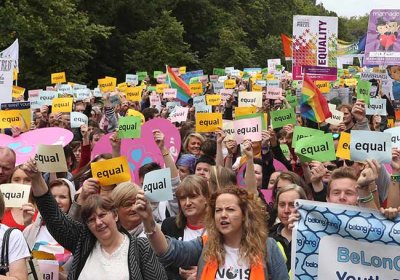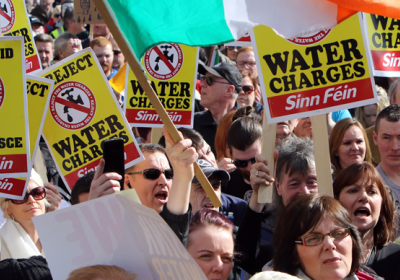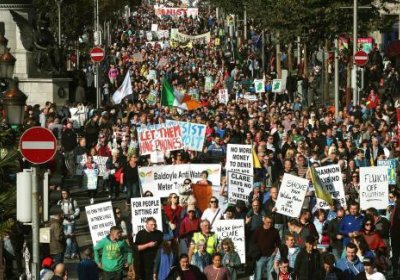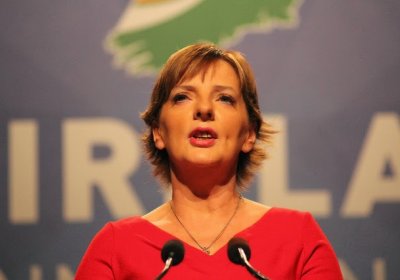 Celebrations and street parties broke out across Ireland after the success of the May 22 referendum to legalise same-sex marriages.
“Same-sex couples could be married in Ireland by the end of the year after a referendum described as a 'social revolution' solidly backed equal rights,” the Morning Star said on May 25.
Celebrations and street parties broke out across Ireland after the success of the May 22 referendum to legalise same-sex marriages.
“Same-sex couples could be married in Ireland by the end of the year after a referendum described as a 'social revolution' solidly backed equal rights,” the Morning Star said on May 25.
Ireland
 Celebrations and street parties broke out across Ireland after the success of the May 22 referendum to legalise same-sex marriages.
“Same-sex couples could be married in Ireland by the end of the year after a referendum described as a 'social revolution' solidly backed equal rights,” the Morning Star said on May 25.
Celebrations and street parties broke out across Ireland after the success of the May 22 referendum to legalise same-sex marriages.
“Same-sex couples could be married in Ireland by the end of the year after a referendum described as a 'social revolution' solidly backed equal rights,” the Morning Star said on May 25.
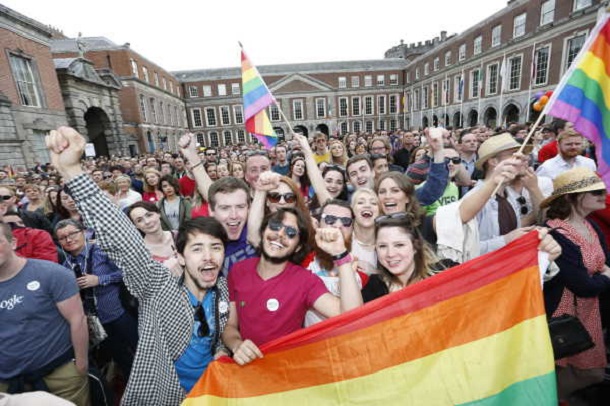 Celebrating referendum victory in Dublin. Photo: An Phoblacht.
As most of Ireland celebrates marriage equality – passed overwhelmingly in a May 22 referendum - the six counties in its north carved off and still claimed by Britain remain excluded.
Celebrating referendum victory in Dublin. Photo: An Phoblacht.
As most of Ireland celebrates marriage equality – passed overwhelmingly in a May 22 referendum - the six counties in its north carved off and still claimed by Britain remain excluded.
 With what appears a landslide win amid a high turnout, all indications are Ireland has voted "yes" to marriage equality in a referendum on legalising same-sex marriages. This is the first time marriage equality has been put to a popular vote anywhere in the world, and makes Ireland the 21st nation to legalise same-sex marriages.
With what appears a landslide win amid a high turnout, all indications are Ireland has voted "yes" to marriage equality in a referendum on legalising same-sex marriages. This is the first time marriage equality has been put to a popular vote anywhere in the world, and makes Ireland the 21st nation to legalise same-sex marriages.
With the support of all of the political parties in Dublin's parliament (the Dail), a May 22 referendum on same-sex marriage could bring official state recognition for Ireland’s gay community and their relationships for the first time.
Sinn Fein Member of European Parliament for Ireland South Liadh Ni Riada began a stailc teanga (“language strike”) in the European Parliament. The representative of the Irish republican party is taking the action against the second-class status afforded the Irish language by the European Union (EU) and to highlight the Irish government’s lack of action on the issue. In protest, Ni Riada is only speaking Irish for the duration of the Seachtain na Gaeilge (“Irish Language Week”), which runs from March 1 to 17.
- Previous page
- Page 7
- Next page

